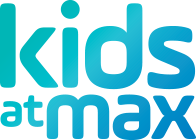
In Australia, 1 in approximately 100 children are diagnosed with autism. I often visit schools as part of my work as a child psychologist and there are a lot of kinder or school classrooms with a child who has autism. The term autism is becoming more common and with this, hopefully too is people’s understanding of what autism is, how a child with autism might present and how they can be supported.
I know many parents feel that the experience of getting their child assessed is stressful, so it is important to get the right support through this process. At the end of the day, the purpose of assessment is to provide your child with the right support specific to their needs and to help them function the best they can at school and with friends.
Whilst autism is quite prevalent, there is no single test to diagnose autism in children. Autism is typically diagnosed with the input of a paediatrician, psychologist and speech pathologist who specialise in this area. If your child is diagnosed with autism prior to the age of 6, they may be eligible for government funding under the Helping Children With Autism Initiative.
An assessment is usually conducted following concerns regarding your child’s behaviour being raised by you as their parent, teachers, their GP or paediatrician. A psychological assessment for autism involves a comprehensive developmental history, parent interview and assessment sessions with your child. Sometimes, an autism assessment also includes a cognitive assessment (IQ) to better understand your child’s strengths and areas where they may need more support. These results can be used to inform educational planning in the classroom and to apply for school-based funding.
The assessment process determines if your child meets the criteria for Autism Spectrum Disorder which is based on the Diagnostic & Statistical Manual of Mental Disorders (DSM-5). The criteria for autism includes difficulties in social communication (e.g. difficulties understanding and developing friendships, deficits in non-verbal communication, deficits in initiating and maintaining a back and forth conversation) and repetitive/stereotyped behaviours (e.g. motor mannerisms, difficulty coping with change, sensory issues, restricted interests, repetitive play). As autism is diagnosed on a spectrum, two children may have the same diagnosis but present quite differently and require different levels of support in the classroom and at home.
If you have concerns for your child, seek support. For further information, please contact Kids At Max on 03 9702 4447.
Written by Kids At Max – Psychologist
